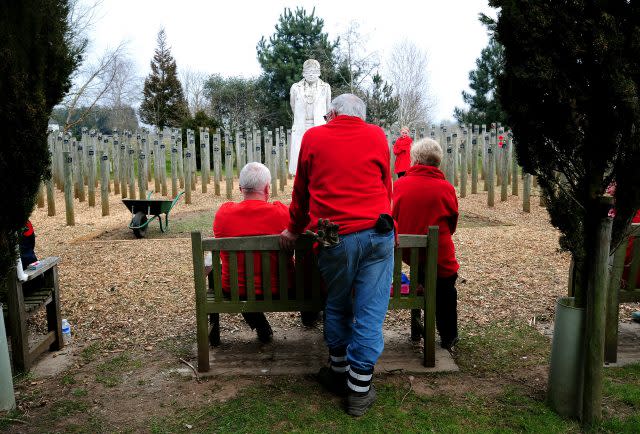Volunteering on nature projects can help boost mental health

Volunteering on projects that bring people closer to nature, from tree planting to growing food, can boost mental health, a study has found.
Most people taking part in volunteering with the Wildlife Trusts - some 95% - who had poor levels of mental health at the beginning of a scheme reported an improvement after six weeks, with further increases over 12 weeks, the research showed.
The study by the University of Essex assessed changes in the attitudes, behaviour and well-being of 139 people, many of whom were attending conservation projects because of needs such as mental health problems or being cut off from other people.
Want to be involved with wild projects near you? #Volunteerhttps://t.co/Wz5goRVkZBpic.twitter.com/0XMeDklq5Z
-- The Wildlife Trusts (@WildlifeTrusts) September 29, 2017
Schemes included a wide range of activities from scrub clearance and tree planting to building bird tables, bug hotels, and sowing seeds and growing food.
As well as the near-universal improvements for those with poor levels of mental health, volunteering in nature improved the well-being of more than two-thirds (69%) of all participants.
People also reported having more positive feelings, greater general health, more physical activity and more contact with natural and green spaces.
Nature volunteering could provide an important "non-medical" service to help people and relieve the burden on the NHS, the report suggested.

Dominic Higgins, nature and well-being manager at The Wildlife Trusts, said the results of the research made a powerful case for nature playing a larger role in people's everyday lives.
"The evidence is loud and clear - volunteering in wild places while being supported by Wildlife Trust staff has a clear impact on people's health; it makes people feel better, happier and more connected to other people.
"Participants also reported increases in their sense of connection to nature.

"The Department of Health should take note - our findings could help reduce the current burden on the National Health Service because they illustrate a new model of caring for people that does not rely solely on medication and traditional services."
Dr Mike Rogerson, from the University of Essex, said the findings showed that attendance on the projects was associated with a number of important health and well-being related measures.
"At a time when we are losing count of local and national-level health, well-being, loneliness, community, and NHS burden crises, engagement with the Wildlife Trusts' volunteering activities can provide a much-needed antidote for individuals, local areas and the UK as a whole," he said.


